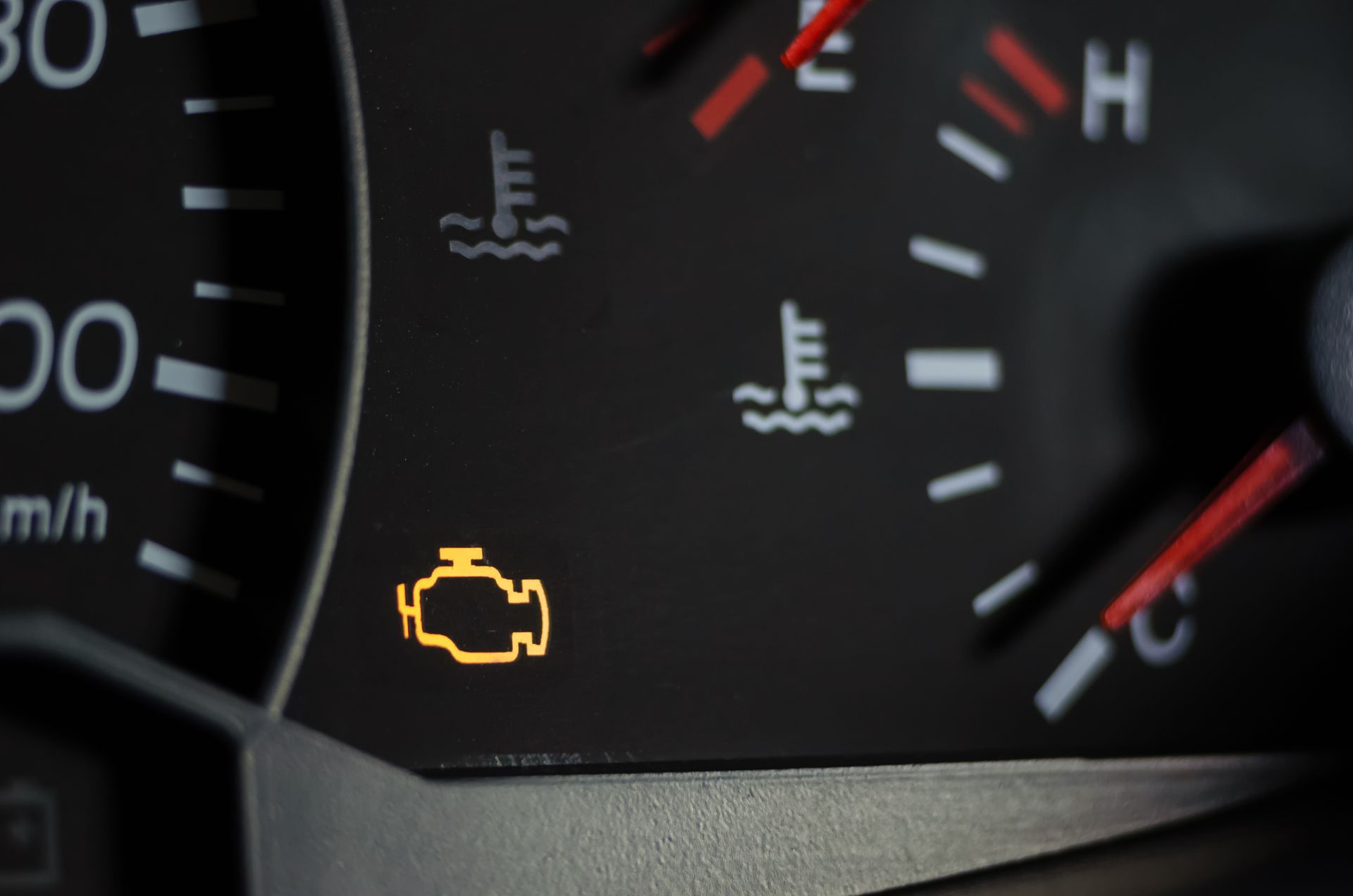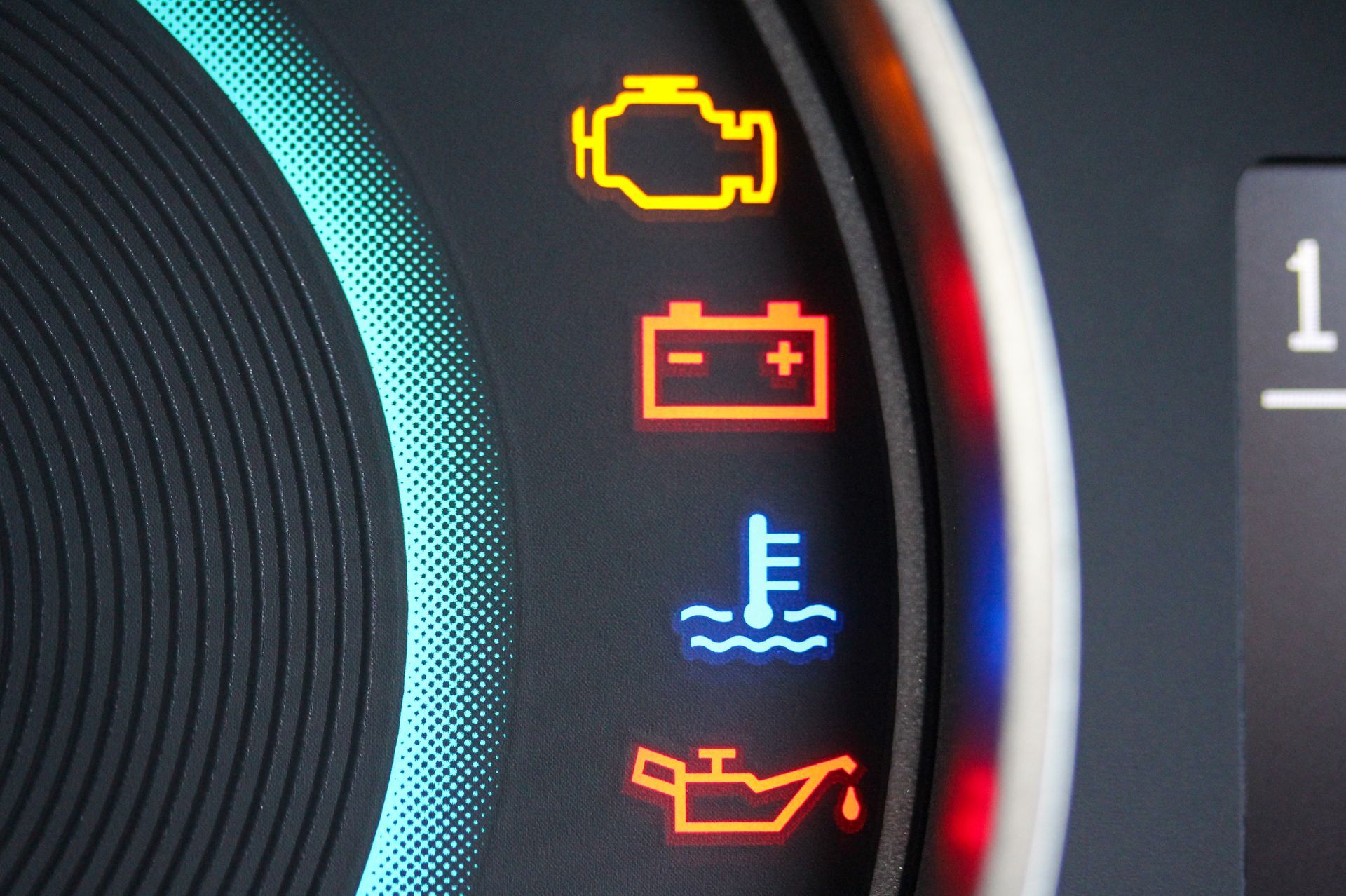Important Fluid Checks Every Hemlock Driver Should Know
Your vehicle depends on several critical fluids to operate safely and efficiently. Regular fluid checks can prevent costly breakdowns, extend your car's life, and keep you safe on Hemlock's roads. Whether you're commuting to Midland, driving through Saginaw County's rural areas, or just running errands around town, knowing how to check your vehicle's fluids is one of the most valuable skills any driver can learn.
Michigan's extreme weather conditions—from summer heat to winter freezing—put extra stress on automotive fluids. Learning to monitor these fluids yourself can save money and prevent the inconvenience of roadside breakdowns.
Engine Oil: Your Engine's Lifeline
Engine oil lubricates moving parts, reduces friction, and helps control engine temperature. It's the most important fluid in your vehicle, and checking it regularly should be every driver's top priority.
How to check engine oil:
- Park on level ground and turn off the engine
- Wait 5-10 minutes for oil to settle
- Pull out the dipstick, clean it, and reinsert fully
- Remove again and check the oil level between minimum and maximum marks
- Look at oil color and consistency
Warning signs of oil problems:
- Oil level below the minimum mark
- Dark, thick, or gritty oil texture
- Metal particles in the oil
- Milky appearance (could indicate coolant leak)
Around Hemlock's dusty rural roads and with Michigan's temperature extremes, oil breaks down faster than in milder climates. Check your oil at least monthly, and don't wait for the oil change light to come on.
Coolant: Preventing Overheating and Freeze Damage
Coolant (antifreeze) protects your engine from overheating in summer and freezing in winter. This is especially critical in Michigan, where temperatures can swing from over 90°F in summer to well below zero in winter.
Checking coolant levels:
- Only check when the engine is completely cool
- Look at the coolant reservoir (usually translucent with minimum/maximum marks)
- Coolant should be between the minimum and maximum lines
- Check the radiator cap only when the system is cool
Signs your coolant needs attention:
- Low coolant level in the reservoir
- Rust-colored or murky coolant
- Sweet smell while driving (indicates coolant leak)
- Engine running hotter than normal
Never remove a radiator cap when the engine is hot. The system operates under pressure and can cause serious burns.
Brake Fluid: Critical for Safe Stopping
Brake fluid transfers the force from your brake pedal to your wheels. This hydraulic fluid is essential for safe stopping, especially on Hemlock's rural roads where emergency stops might be necessary for wildlife or farm equipment.
Brake fluid inspection:
- Locate the brake fluid reservoir (usually near the firewall)
- Check fluid level against minimum and maximum marks
- Examine fluid color and clarity
- Look for any leaks around the reservoir
Brake fluid warning signs:
- Fluid level below minimum mark
- Dark, contaminated, or cloudy fluid
- Spongy or soft brake pedal feel
- Brake pedal that sinks to the floor
Brake fluid absorbs moisture over time, which can lead to brake failure. If you notice any brake fluid issues, stop driving and seek professional help immediately.
Transmission Fluid: Smooth Shifting Protection
Transmission fluid lubricates your transmission's moving parts and helps transfer power from your engine to your wheels. Both automatic and manual transmissions need proper fluid levels to operate correctly.
For automatic transmissions:
- Check with engine running and transmission warm
- Use the transmission dipstick (often has a different handle than oil dipstick)
- Fluid should be between minimum and maximum marks
- Check fluid color and smell
Transmission fluid warning signs:
- Low fluid level
- Dark brown or black fluid (should be red or pink)
- Burnt smell
- Rough shifting or slipping gears
Transmission repairs are expensive, making regular fluid checks especially important for protecting your investment.
Power Steering Fluid: Easy Steering Control
Power steering fluid helps you turn your steering wheel with minimal effort. This is particularly important for larger vehicles or when parking in tight spaces around Hemlock's downtown area.
Power steering fluid check:
- Locate the power steering reservoir (usually has a steering wheel symbol)
- Check fluid level with engine off
- Fluid should be between minimum and maximum marks
- Look for leaks around the reservoir and hoses
Signs of power steering problems:
- Low fluid level
- Hard steering, especially at low speeds
- Whining noise when turning
- Foaming or discolored fluid
Windshield Washer Fluid: Clear Visibility
While not critical for engine operation, windshield washer fluid is essential for maintaining clear visibility. Michigan's roads can be dusty in summer and salty in winter, making clean windows crucial for safe driving.
Washer fluid maintenance:
- Check reservoir level regularly
- Use appropriate fluid for the season (freeze-resistant in winter)
- Keep reservoir full, especially during winter months
- Replace worn wiper blades for best results
Running out of washer fluid when you need it most—like when salt spray covers your windshield on I-75—can create dangerous driving conditions.
When to Check Vehicle Fluids
Make fluid checks part of your regular routine:
Monthly checks:
- Engine oil level and condition
- Coolant level in reservoir
- Brake fluid level
- Windshield washer fluid
Every few months:
- Transmission fluid level and condition
- Power steering fluid level
- Look for any leaks under your parked vehicle
Before long trips:
- Check all fluid levels
- Carry extra oil and coolant
- Ensure washer fluid is full
Professional Fluid Service
While checking fluid levels is something most drivers can learn, some fluid services require professional attention. Flushing old fluid, diagnosing leaks, and replacing contaminated fluids should be handled by qualified technicians with proper equipment.
Signs you need professional fluid service:
- Any fluid consistently running low (indicates leak)
- Contaminated or discolored fluids
- System performance problems
- Scheduled maintenance intervals
Keep Your Vehicle Running Smoothly
Regular fluid checks are one of the easiest ways to maintain your vehicle's reliability and prevent costly repairs. However, when you need professional fluid service, leak diagnosis, or system repairs, trust the experts who know your vehicle best.
At Hemlock Auto & Alignment, our ASE-certified technicians provide comprehensive fluid services using quality products and advanced diagnostic equipment. From simple fluid changes to complex leak repairs, we help keep your vehicle running smoothly and safely.
Located at 16575 Gratiot Road in Hemlock, we serve drivers throughout Saginaw County with honest, professional automotive care backed by our 36-month/36,000-mile warranty.
Don't wait for fluid problems to leave you stranded. Call us at (989) 642-4423 or schedule online for your next fluid service. Let our experienced team help keep your vehicle's fluids in top condition—because proper maintenance today prevents expensive repairs tomorrow.












